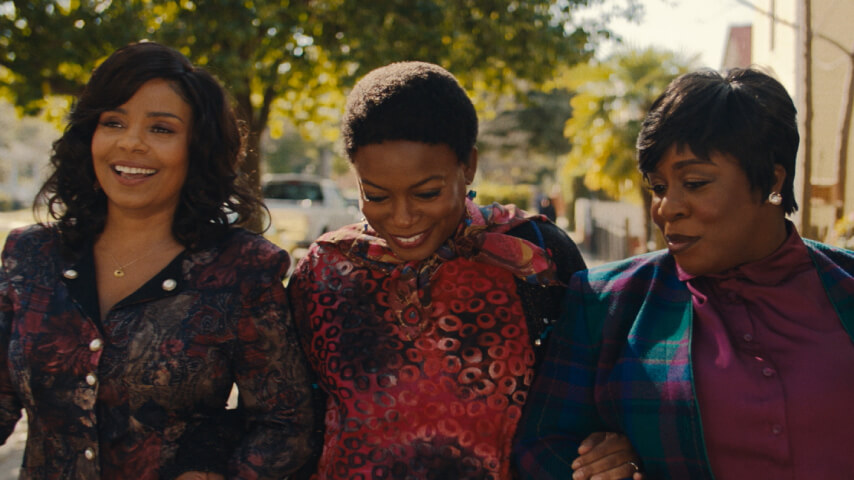It's easy to overindulge on the tragedy buffet of The Supremes At Earl’s All-You-Can-Eat
The adaptation of Edward Kelsey Moore’s novel of lifelong friendship and strife struggles to live beyond its tragedy.
Photo: Searchlight Pictures
As so much media loves to remind us, life is not our hardships but the friends we’ve made along the way. Edward Kelsey Moore’s novel The Supremes At Earl’s All-You-Can-Eat is a charming examination of that maxim, balancing humor and heartbreak so as to reaffirm the value of keeping on. Director Tina Mabry and her co-writer Cee Marcellus do their best to capture the essence of that message in their cinematic adaptation, but the weight of this story’s collective traumas threatens to sacrifice good intention on the altar of fidelity to the source material.
The Supremes are a trio of Black women, so dubbed by Big Earl (Tony Winters), the proprietor of their Indiana community’s diner, in 1969 as the young women come in to request a table that will serve as their sanctuary for the next 30 years. Odette (Kyanna Simone in 1969, Aunjanue Ellis-Taylor in 1999) is the headstrong de facto leader of the group, supportive of her best friends but often at the expense of fully speaking her mind. Clarice (Abigail Achiri in 1969, Uzo Aduba in 1999) is a blossoming musician who feels she must contemplate giving up a career as a pianist to raise a family with her star quarterback boyfriend, Richmond (Xavier Mills in 1969, Russell Hornsby in 1999). Finally, Barbara Jean (Tati Gabrielle in 1969, Sanaa Lathan in 1999) recently orphaned by her alcoholic mother, finds herself torn between the security offered by an older gentleman, Lester (Cleveland Berto in 1969, Vondie Curtis-Hall in 1999), and the wild love she feels for white busboy Chick (Ryan Paynter in 1969, Julian McMahon in 1999) in a time when their relationship makes them vulnerable to racist violence.
Bouncing back and forth between the two time periods allows The Supremes At Earl’s All-You-Can-Eat to weave plenty of twisting reveals into the lives of its protagonists, unveiling details of their personal stories that either inform their friendship or exist outside of their decades-long bond. This story is a smorgasbord of traumatic themes, including child abuse, racism, teen pregnancy, emotional abuse and manipulation, murder, adultery, alcoholism, cancer, and sudden unexpected death. The point of these tragedies, from a narrative standpoint, is to challenge the Supremes’ friendship, to push them as far as possible before mutual love and support pulls them back from the brink of individual obliteration. However, at just over two hours, The Supremes At Earl’s All-You-Can-Eat indulges its tragedies to the point of excess.
